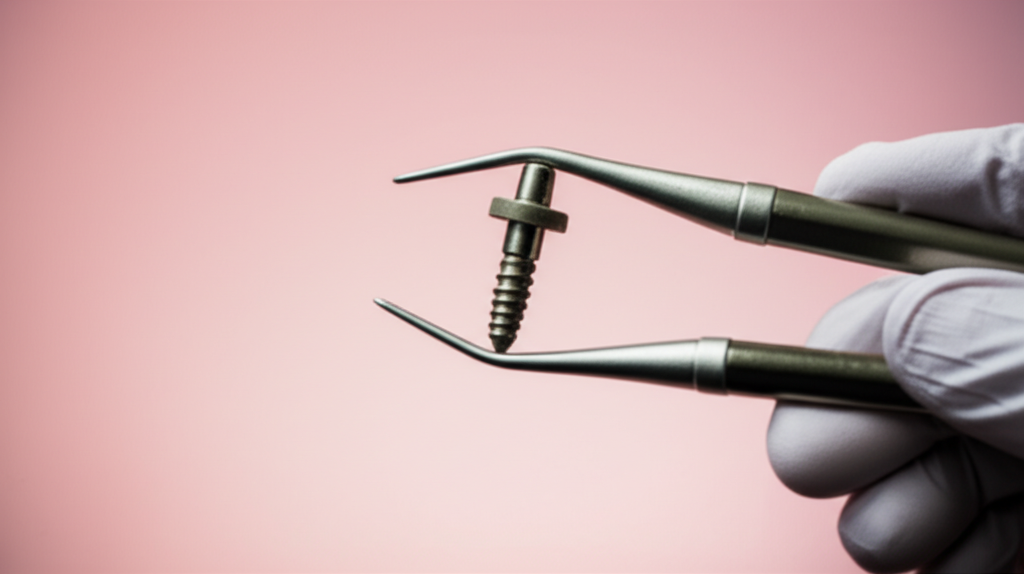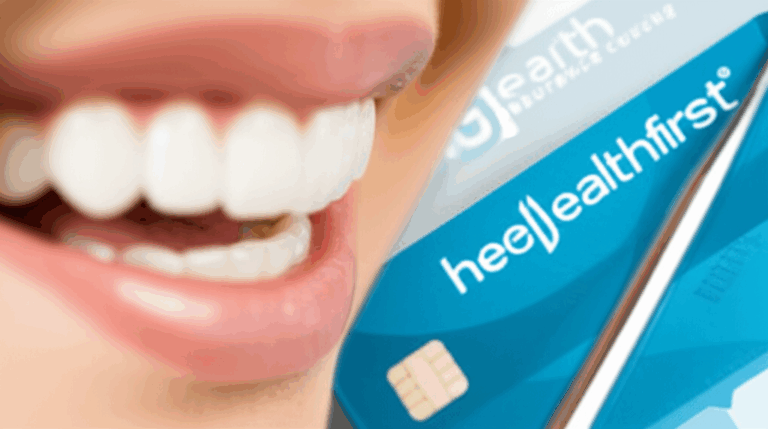
Do Dental Implants Cause Cancer? A Simple, Honest Guide for Worried Patients
That Nagging Question: Can Dental Implants Cause Cancer?
Maybe you found yourself typing this question online late at night, feeling your new tooth with your tongue or thinking it over after your dentist suggested implants: Do dental implants cause cancer? You’re not alone. It’s a common worry, especially with more people getting dental implants and rumors floating around online.
Let’s hit pause right here. This worry does not mean you’re overthinking. It just means you care about your health. Whether you’re thinking about implants, already have them, or just heard something scary, you deserve a straight, clear answer you can trust.
That’s what this guide is for. We’ll explain what dental implants are made from, what the science really shows about cancer risk, and how you can make good choices for your mouth and your whole body. Don’t worry—this will be as simple as having a chat with a friend who cares.
In This Article
- The Short Answer: What We Know About Dental Implants and Cancer Risk
- What Are Dental Implants Made Of? (And Why This Counts)
- Looking at the Main Worries: How These Concerns Began
- What Science Says: Studies, Numbers, and What Experts Think
- What Really Causes Mouth Cancer (It’s Usually Not Implants)
- How To Make Sure Your Implants Are Safe
- Who Should Get Dental Implants?
- The Main Takeaway: What You Should Remember
- FAQs About Dental Implants and Cancer
The Short Answer: What We Know About Dental Implants and Cancer Risk
Here’s what you really want to know: Do dental implants cause cancer?
No.
After many years, lots of research, and checking by groups like the American Dental Association (ADA), the Food and Drug Administration (FDA), and the National Cancer Institute (NCI), there is no proof that dental implants cause cancer.
Dental implants are known for being safe, strong, and lasting a long time. Millions of people have them all over the world. Almost everyone with implants has no major health problems—cancer included.
But don’t just take our word for it. Let’s look closer, see what the research says, and explain why this fear comes up—and why you really don’t need to worry.
What Are Dental Implants Made Of? (And Why This Counts)
Ever wonder, “What’s in my jaw now?” Good question! The stuff used in dental implants is a big reason they’re safe. Here’s what goes into them:
Titanium Implants: The Most Common Kind
Most dental implants today are made from titanium. Think of a small metal screw that goes into your jawbone. Titanium has some big pluses:
- Safe in the body: Your body sees titanium as a friend, not a threat. Over a few months, your bone even grows onto it, making it super strong and stable.
- Doesn’t rust: Titanium forms a thin shield that stops it from breaking down, even in your wet mouth. It might release tiny bits over years, but science shows they’re so small they cause no harm.
- Used in other body parts: Doctors use titanium for things like hip fixes, knee fixes, bone screws, and even heart devices. It’s safe, and it works.
Zirconia Implants: The All-Ceramic Choice
Some dentists talk about zirconia, a ceramic choice without metal. Zirconia is like a tough cup, not a thin one.
- Good for people with allergies: If you worry about being allergic to metal, zirconia is often fine.
- Looks like a tooth: Some people go with zirconia if their gum is thin, as it can look more natural.
- Safe too: Just like titanium, zirconia doesn’t react with your body or break down. We don’t have quite as long a track record, but so far, all the research looks really good.
Other Materials
You might hear about small amounts of nickel, cobalt, chrome, or even titanium dioxide in some parts. These help make the pieces stronger or more bendy, but only in tiny amounts, and most people have no problem with them.
Worried About “Hidden” Stuff in Your Implant?
If you have a known allergy to some metal, just tell your dentist! They’ll help you pick what’s safest for you. For everyone else, today’s tests make sure there aren’t weird surprises.
Looking at the Main Worries: How These Concerns Began
Why does the idea of cancer and dental implants come up? Let’s look at some common worries and clear them up.
Worry #1: Metal Breaking Down or Sending Out Bits
Some people think metal might wear away or “leak” into the body over time. After all, who wants rusty metal in their mouth?
- Tiny amount comes out: Titanium and zirconia make a tight layer over themselves, so barely any particles get out.
- Harmless bits: If any small piece does come away, your body will handle it or keep it out of trouble.
- These metals are made to stay strong in the mouth—even when wet and warm for years.
Think of it like a wedding ring: You might scratch it, but it isn’t melting into your hand.
Worry #2: Inflammation and “Peri-Implantitis”
There’s a word you may hear: peri-implantitis. It means the gum around your implant gets sore or swollen, almost like gum disease next to the implant.
- Long-term swelling and cancer: It’s true that swelling in the body over a very long time (like many years of untreated gut problems) can sometimes make cancer more likely down the line.
- But with implants? No good study says swollen gums around an implant will become cancer. Usually, it’s mild and gets better with cleaning and visits to your dentist.
- Easy fix: Brush and clean around your new “tooth root” like your real teeth, and go for regular check-ups. That keeps your risk super low.
Worry #3: Allergies Or Whole-Body Effects
- Allergies to titanium are extra rare. Most people who say they are “allergic” to titanium just have a bit of skin redness or irritation.
- What if I get sore gums? If you ever see a red, swollen, or painful area around your implant, call your dentist—not because of cancer, but to fix it fast.
- No proof of other diseases: Watching people with implants for many years shows no higher risks for diseases in the rest of your body.
Worry #4: Metal Sparks or “Electric” Mouth
You might hear mixing different metals in your mouth can make a tiny “shock.” If you have several metals, this can happen sometimes, but your dentist picks implant materials to prevent it. There’s no proof this causes cancer.
What Science Says: Studies, Numbers, and What Experts Think
Everyone online says they have “the facts.” But what do the real experts—dentists and scientists who study this stuff for years—actually see when they look at cancer risk from dental implants?
Here’s What We Know:
- No direct or solid proof links dental implants to cancer.
- Huge studies and reviews have checked thousands of people—no red flags.
- Groups like the ADA, FDA, WHO, and NCI all say dental implants are safe for most people.
- Science keeps watching: Researchers keep an eye out, just to be safe.
Key Research Facts
| Topic | What The Facts Say | Source |
|---|---|---|
| Titanium Implants | Safe, strong, don’t cause cancer | “Titanium as a Biomaterial” |
| Zirconia Implants | No metal, good for allergies, no cancer links | “Biological Responses to Zirconia…” |
| Peri-Implantitis & Cancer | No solid link—cleaning is what matters | Major reviews |
| Metal Bits From Implants | Tiny levels, body handles them fine | Studies on titanium |
| Cancer Risk in Implant Users | Not higher than in people without implants | ADA, FDA, NCI data |
| Safety Checks | Lots of tests and follow-ups by the FDA | FDA rules |
Curious for extra details? Check trusted resources from the International Congress of Oral Implantologists, the Journal of Dental Research, or the National Institutes of Health.
What Really Causes Mouth Cancer (It’s Usually Not Implants)
To see the big picture, let’s talk about what actually raises your risk for cancer in your mouth. Spoiler: It’s not the dental implant.
The Real Big Risks
- Tobacco: Smoking or chewing tobacco is the top risk.
- Heavy alcohol: Drinking a lot, and especially if you also smoke.
- HPV virus: This virus, which can pass from person to person, raises the risk.
- Too much sun on lips: Sunburns on your lips over and over again can cause trouble.
- Diet, family history, and long-lasting mouth irritation: These are less common, but still matter.
Bottom line? Dental implants are nowhere on this list.
How To Make Sure Your Implants Are Safe
Let’s talk solutions. What can you do to stay on the safe side and keep your implants healthy?
What You Should Do
1. Pick a Good Dentist or Surgeon
Choose someone with experience placing implants. Ask about their training and what materials they’ll use. That’s important for getting top results.
2. Share Your Medical Story
If you have any allergies, immune troubles, or other problems, tell your dentist before starting.
3. Keep Your Mouth Clean
Brush carefully with a soft brush. Use gentle toothpaste. Floss every day or use small brushes to get between teeth.
4. See Your Dentist Regularly
Go for check-ups and cleanings. They’ll make sure your gums, bone, and implant all look good.
5. Pay Attention to Changes
If you ever notice swelling, soreness, or anything loose near your implant, call your dentist. Fixing little things fast stops big problems.
Want more about what happens after you get implants? Learn about the high-quality work of today’s implant dental laboratories, which help make sure your new tooth feels and fits right.
Who Should Get Dental Implants?
Are implants a good idea for everyone? Not exactly. Knowing if you’re a good fit makes your decision even safer.
Good Candidates:
- Grown-ups with missing teeth
- People with enough jawbone to hold the implant (sometimes doctors can fix the bone first, if it’s thin)
- People who do not have badly controlled diabetes or ongoing gum disease
- People who don’t smoke a lot
Who Should Double-Check First:
- People with very weak bones (severe osteoporosis)
- People with serious immune system problems
- Anyone with a real allergy to implant parts (rare, but it happens)
Not sure? A good checkup (maybe even a 3D scan) will help your dentist decide. And remember, there are other options, like strong removable dentures, if implants aren’t right for you.
The Main Takeaway: What You Should Remember
Big choices need clear info and easy next steps. Here’s what matters most:
- Dental implants have NOT been shown to cause cancer.
- Titanium and zirconia are both safe for almost everyone. Real allergies or problems are rare, and not cancer-related.
- Smoking, drinking a lot, HPV, and sun are the real cancer risks—not dental work.
- You’re in charge: Pick an experienced dentist, be honest about health problems, clean your teeth every day, and don’t miss check-ups.
- If you already have implants, relax! Just stick to your normal dentist visits.
- If you’re thinking about getting them, now you know the facts—and can let your dentist know your worries without fear.
What To Do Next
- Still worried? Book another chat with your dentist. Bring your questions!
- Keep going for check-ups.
- Get your info from good sources; skip the scary, clickbait headlines.
Frequently Asked Questions About Dental Implants and Cancer
Q1: I read about someone getting cancer near their implant—does that mean it caused the cancer?
Short answer: No. Sometimes, cancer shows up near an implant just by chance, and it’s usually tied to things like smoking.
Q2: Will metal bits from my implant build up over the years and make cancer?
Science says no. Any metal bits are tiny, and your body deals with them easily. Only safe materials are used in dental implants.
Q3: Should I pick zirconia instead of titanium just to be extra safe?
Both are very safe. The choice depends more on allergies or how you want your teeth to look.
Q4: How can I keep myself safe with dental implants?
Select a great dentist, share your health history, and keep your mouth clean. It’s that simple.
Bonus: Want More Info?
Wondering how dental labs make those lifelike crowns or bridges? Check out how a top zirconia lab helps build a better smile.
Got more worries? Your dentist is always there to help—think of them as your teammates, not just the fixer when something goes wrong.
A quick reminder: Google can’t know your mouth the way your dentist does. Stick with your care team, ask questions, and put your fears aside so you can focus on a healthy, happy smile.
Sources:
- American Dental Association (ADA)
- U.S. FDA
- National Cancer Institute
- “Dental implants and risk of cancer: A systematic review and meta-analysis” (Mendoza-Azpur et al., 2019)
(Info correct as of 2024. For personal advice, always check with your dentist.)








